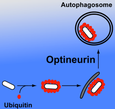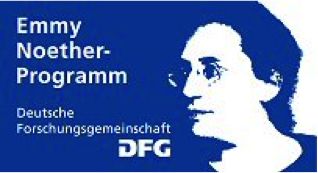News from the Institute

If you were granted one wish for the advancement of your research projects, what would this be?
Well, I've always valued and emphasized a creative atmosphere. It not only means being surrounded by intelligent people, but also having enough time
to think.
Not having countless administrative duties, committees, applying for funding, etc. Scientists need time to develop brilliant ideas that help address issues we normally would not have time to consider. So my wish would be that we scientists do not have to waste too much valuable time on administrative issues, but can dedicate ourselves to conducting research.
... (read more)
The ERC approved funding for his proposal on Xenophagy and bacterial avoidance (XABA). Briefly, microbial pathogens that successfully parasitize eukaryotic cells have evolved to evade autophagic microbial defenses (xenophagy) and subvert the host autophagic responses for their own survival and/or growth.
Central to xenophagy is cargo recognition and dynamic rearrangements of membrane-bound compartments to sequester and deliver pathogen load for lysosomal degradation.
... (read more)
Infection with Salmonella, epithelial cells can get rid of the unwanted invader by a process called autophagy. In today's issue of the journal Science, an international group of scientists around IBC2 director Ivan Dikic describes how selectivity is achieved in this process.
... (read more)
Dr. Christian Behrends received the prestigious Emmy Noether Research Fellowship by the DFG. His independent group will be funded for three years with a perspective to 3 years extension. The mammalian autophagy signaling pathway is at the center of Dr. Behrends's research activities. In particular, he is interested in the dynamics of the autophagy interaction network under different physiological conditions
... (read more)
An international team of scientists led by IBCII director Ivan Dikic discovered a novel role for the protein SHARPIN in immune signalling.
In today's issue of Nature, they show how SHARPIN stimulates formation of linearized ubiquitin chains, triggering activation of a central regulator of immune responses.